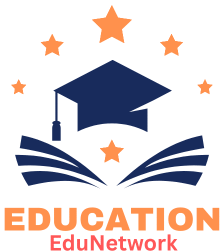A career as an education consultant is quickly rising to the ranks of the most dynamic and consequential occupations in today’s dynamic and unpredictable educational landscape. Positions in this field combine business acumen, strategic thinking, and teaching expertise to help organizations, families, and students achieve their educational goals. Professionals with a passion for education or those with teaching experience looking for a new challenge will find a multitude of opportunities in education consulting.
Job responsibilities, required skills, potential employers, and entry points into the growing field of education consulting are all covered in detail in this comprehensive guide.
How Do Education Consulting Positions Work?
Professional advice and strategic planning for educational institutions, schools, parents, and students are all part of an education consultant’s job description. Consultants may focus on a wide range of issues, including curriculum development, college admissions, teacher training, school reform, educational technology, and policy formulation.
These professionals often work as independent contractors, for consulting firms, or for larger academic organizations. Their primary goals are to enhance educational outcomes, maximize institutional performance, or help individuals overcome educational hurdles and achieve educational milestones.
Different Education Consulting Positions
There is a lot of variety in the area of education consulting. Some of the most common roles in education consulting are as follows:
1. Expert Advice for Professors
Academic advisers are there to help students and their families through the difficult processes of high school diploma requirements, college admissions, scholarship applications, and school selection. Their areas of expertise often include:
-
Help in applying to college
-
Test prep (GRE, SAT, ACT, etc.)
-
Guidance in navigating many professions
2. Advising Middle and High Schools
Consultants specializing in K-12 work closely with schools to improve lesson delivery. Certain responsibilities fall under their purview:
-
Curriculum development and consistency
-
Training and development opportunities for educators
-
Implementing strategies for inclusive education
-
Promote efforts in the field of special education
3. Advising on College and University Issues
The following are some of the ways in which these consultants help educational institutions:
-
Getting ready for certification
-
Plans for the future and policies
-
Managing the enrolling process
-
The process of attracting overseas students
4. Advising on Educational Technology
The growth of online education has led to a dramatic increase in the need for educational consultants working in the edtech sector. In this context, consultants provide guidance on:
-
Pedagogical resources and software
-
Creation of virtual classrooms
-
Learning management system (LMS)
-
Approaches to digital revolution
5. Advising on Corporate Training
Consultants often work in tandem with companies to launch employee development and training programs. They bridge the gap between formal education and the workforce by:
-
Development of online education programs
-
Assessing the goals of education
-
Harmonizing business goals with employee development
Skills Necessary for Success in the Education Consulting Field
Expertise in both corporate strategy and the education sector is essential for those working in education consulting. Skills that are crucial include:
-
Familiarity with the field of education: preferably classroom instruction, administrative work, or educational psychology.
-
Analytical Thinking: Consultants are tasked with data analysis and improvement discovery.
-
The ability to express oneself clearly is essential when presenting findings and recommendations.
-
Project management: A frequent responsibility in consulting assignments is to oversee teams, budgets, and deadlines.
-
Solving Problems: Tailored answers are often necessary for specific institutional or student issues.
-
Knowledge of Educational Technology: Consultants that are well-versed in this area may have an upper hand.
Educational Prerequisites and Credentials
Education consulting doesn’t have a specific minimum or maximum requirement, however most consultants have the following:
-
A bachelor’s degree is often required in fields such as teaching, psychology, or comparable fields.
-
A master’s degree is usually required for highly specialized jobs, such as those in policy consulting or higher education.
-
The ability to demonstrate credibility and provide insightful commentary is greatly enhanced by practical experience in the classroom or in administrative roles.
-
Qualifications: Some occupations, such instructional design and Certified Educational Planner (CEP), need certifications.
Positions in Education Consulting and Where to Find Them
Education consulting roles may be found on several platforms, so it’s worth exploring if you’re interested in this field of work:
-
Indeed, LinkedIn, Glassdoor, and SimplyHired are some of the most popular job sites where both full-time and freelance opportunities are advertised.
-
Websites Focused on Higher Education: I really recommend HigherEdJobs, EdSurge, and The Chronicle of Higher Education.
-
Companies in the consulting industry: McKinsey Education, EAB, and Huron Consulting are common employers of education consultants.
-
Many professionals start their own consulting firms using online resources, personal connections, and word of mouth recommendations.
Salary Estimates for Education Consulting Roles
Education consultants’ salaries vary widely according to factors including area of specialty, years of experience, and level of training. A rough synopsis is as follows:
-
Typical starting salary range: $40,000–$60,000
-
Mid-Level: $60,000 to $90,000 a year
-
Independent contractors and senior-level employees: $90,000 to $150,000+ per year, with the possibility of earning more from certain contracts.
-
Freelance consultants’ hourly rates might vary from $50 to $200+, according on market demand and the consultant’s degree of expertise.
Why Is Education Consulting a Solid Profession to Pursue?
Education consulting is a popular career path for several reasons, including the following:
1. Flexibility
Many consultants work remotely or on contract, which allows them more flexibility in their schedules.
2. A Range of Options
From influencing national education policy to helping pupils succeed in school, the variety is vast.
3. Impact-Driven Work Consultants
If we want to make a big difference in schools and other educational institutions, we need Impact-Driven Work Consultants.
4. Constant Learning Consulting
With Constant Learning Consulting, it is essential to stay updated on educational legislation, technology advancements, and best practices.
5. Lucrative Opportunities
As challenges in education further complicate matters, the need for (and pay for) competent consultants is on the rise.
An Introduction to the Field of Education Consulting
If you are ready to embark on a career as an education consultant, follow these steps:
1. Get Some Experience
Get your feet wet in the classroom, school administration, or guidance counseling roles in the field of education.
2. Look into Furthering Your Education
Consulting is a competitive field, therefore it could be helpful to distinguish out by earning relevant qualifications and higher degrees.
3. Make a Catalogue
Prove your value to potential clients or employers by highlighting your past projects, achievements, and recommendations.
4. Online Space
Make connections with industry leaders via LinkedIn, attend conferences devoted to education, and become a member of groups like the Independent Educational Consultants Association (IECA).
5. Choose Specialty
Perhaps you might stand out and attract the correct type of clients if you narrowed your focus to a certain area, like college counseling, edtech, or policy change.
6. Get Your Name Out There
Create a professional website, publish content that make people think, and use search engine optimization and digital marketing to reach potential clients if you want to be a freelancer.
Possible Career Paths in Education Consulting
Education consulting has a promising future. Due to the rapid improvement of technology, the shift towards personalized learning, and the growth in both student and institutional needs, the demand for consulting services is on the rise on a global scale.
The following tendencies will influence the industry:
-
An Increasing Demand for Experts in Online Learning
-
A Global Perspective on Higher Education
-
The Mental Health of Students is Receiving More Focus
-
Education Reform and Policy Shifts
-
Using Data to Inform School Decisions
Adapting to these changes, offering measured answers, and demonstrating measurable outcomes will ensure education consultants’ continued success.
In Conclusion
Education consulting offers a rewarding career path that caters to those who enjoy learning and want to make a significant difference. No matter whether you’re assisting a school in improving their performance, a student in getting into their dream school, or a consultant in advising on the implementation of educational technology, your effort might have a lasting impact.
As the education business continues to grow, the need for skilled consultants is expected to rise. With the right mix of expertise, enthusiasm, and experience, education consulting may be a lucrative and fulfilling profession.
